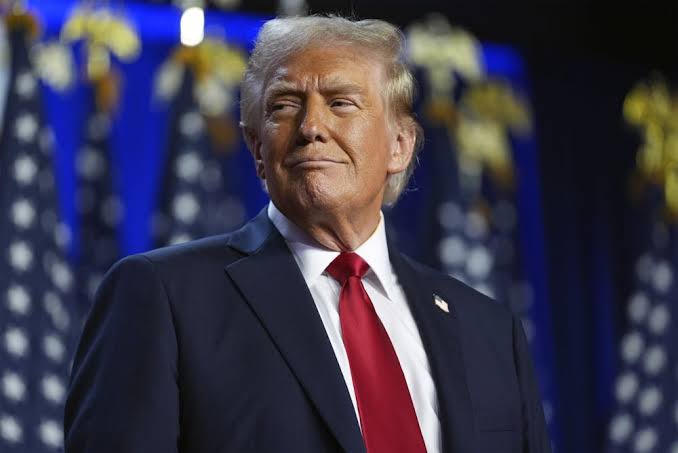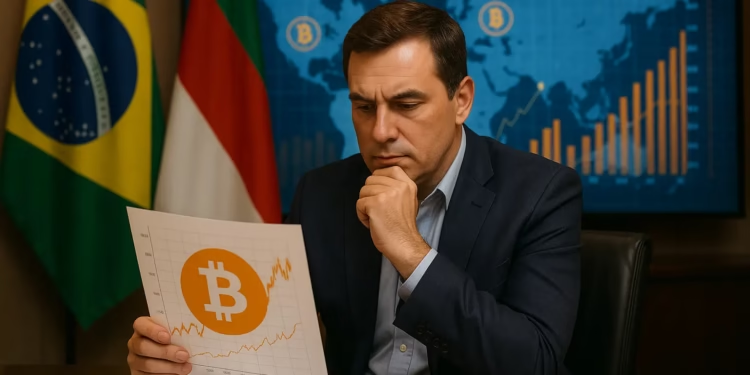Indonesia and Brazil have become the latest countries to explore the inclusion of bitcoin reserve as a part their national reserves, signaling a significant shift in how emerging economies view digital assets as tools for economic strategy and resilience.
In Indonesia, a meeting took place last week between Bitcoin Indonesia, a local crypto policy advocacy group, and representatives from the office of Vice President Gibran Rakabuming Raka. The group presented a proposal outlining how bitcoin could serve as a long-term reserve asset, leveraging the country’s surplus renewable energy for strategic accumulation.
Meanwhile, Brazil is preparing for a public congressional hearing on August 20 to deliberate a draft bill that could authorize the allocation of up to 5% of its national reserves to bitcoin, a move that, if approved, could amount to nearly $15 billion in digital assets.
Both nations appear to be responding to a broader international trend triggered in part by the United States’ recent move to establish a strategic bitcoin reserve, announced via executive order earlier this year.
Indonesia tests digital waters amid regulatory caution
Indonesia’s interest in forming a strategic bitcoin reserve remains in the exploratory phase. While the country allows cryptocurrency trading under current regulations, it has banned the use of crypto as a means of payment since 2017. However, growing domestic interest, renewable energy capacity, and international precedents have brought bitcoin back into the policy conversation.
“Yes, seriously. [Indonesia] is looking into how bitcoin could fuel long-term economic strength,” the Bitcoin Indonesia group stated on X (formerly Twitter), following its meeting with the Vice President’s office.
According to the group, the delegation proposed the use of excess renewable energy to power bitcoin mining and accumulation initiatives, viewing this not just as a path to economic diversification but also as a means to modernize national infrastructure.
Educational materials such as The Bitcoin Standard and The Changing World Order were shared during the discussions to underline the broader economic implications of adopting bitcoin at the state level.
A representative from the Vice President’s office reportedly responded positively to the proposal, acknowledging the need for increased public literacy around digital assets: “Indonesia must continue to educate about bitcoin in the future,” the official said, as quoted by local attendees.
Despite its cautious regulatory stance, Indonesia’s openness to evaluating bitcoin as a strategic asset highlights a growing recognition of digital currencies in shaping long-term financial policy.
Brazil sets legislative process in motion
Brazil has taken a more formal route. The country’s House of Representatives is scheduled to hold a public hearing on August 20 to debate a draft bill proposing that up to 5% of Brazil’s foreign reserves be converted into bitcoin. Six key institutions, including the central bank, the finance ministry, and the securities commission, are expected to participate.
The bill, championed by several members of Congress, argues that holding bitcoin could serve as a hedge against currency devaluation, inflation, and systemic financial shocks, issues that Brazil has faced intermittently over the past decades.
“This proposal deserves serious consideration as part of a diversified reserve strategy,” said João Pedro Borges, a financial analyst at São Paulo-based crypto think tank Nova Política Digital. “Bitcoin is not just a speculative asset anymore, it’s becoming an alternative to gold for sovereign hedging.”
Still, the legislative pathway may be steep. Brazil’s central bank has publicly expressed reservations, with its monetary policy director questioning the volatility and long-term viability of bitcoin as a reserve asset.
Vice President Geraldo Alckmin, however, has reportedly endorsed the debate, calling it “in the national interest,” though stopping short of a full policy endorsement.
Global ripple effect from U.S. bitcoin reserve strategy
The trend toward sovereign bitcoin reserves gained momentum following a landmark decision by the United States earlier this year. In March, former President Donald Trump signed an executive order authorizing the formation of a U.S. strategic bitcoin reserve, the first such initiative by a major economy.
That decision appears to have prompted other nations to reevaluate their stance. For countries with fragile currencies or underutilized energy infrastructure, bitcoin offers both a diversification strategy and a tool for asserting financial sovereignty.
“Subsidizing crypto mining risks distorting energy markets,” an IMF spokesperson said in a recent comment to Independent Urdu, warning against unbalanced policy moves.
Yet even critics acknowledge that bitcoin’s decentralized nature and limited supply offer unique benefits as a reserve instrument, especially amid rising geopolitical uncertainty.
Countries like Pakistan, Ukraine, and Sweden have also begun publicly discussing the possibility of bitcoin reserves, though no formal frameworks have been enacted to date.
Outlook: policy, infrastructure, and education remain key
The movement toward national bitcoin reserves is still nascent but gaining traction. For both Indonesia and Brazil, significant questions remain around risk management, regulatory design, energy sustainability, and public awareness.
However, the very act of hosting discussions at senior levels of government marks a turning point for bitcoin’s legitimacy as part of national financial architecture.
Whether bitcoin becomes a fixture in global reserve strategies remains uncertain, but its growing presence in economic policy debates signals a broader shift toward the digitalization of sovereign finance.











